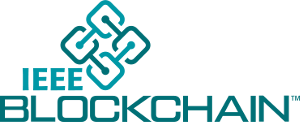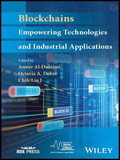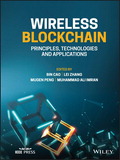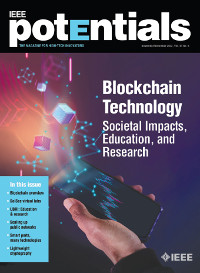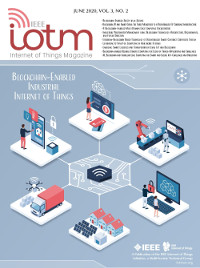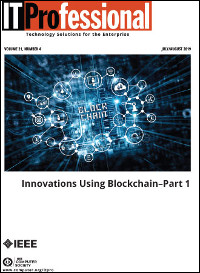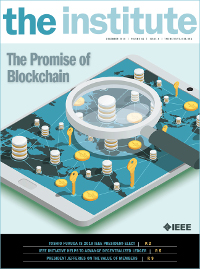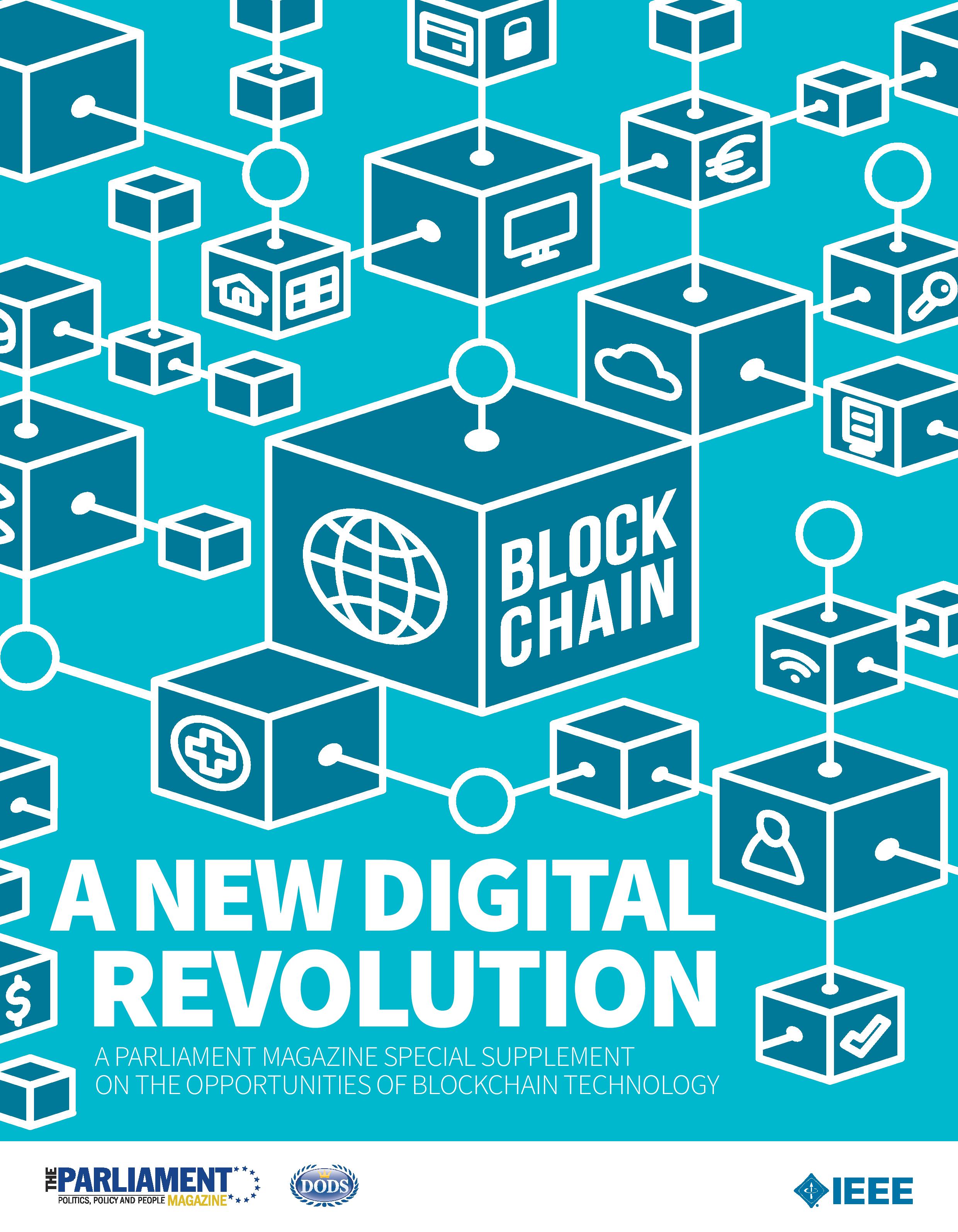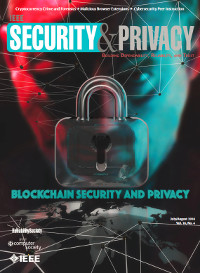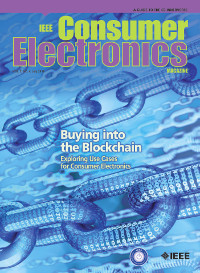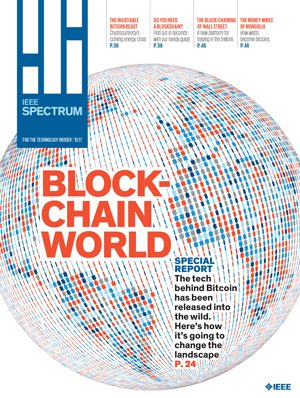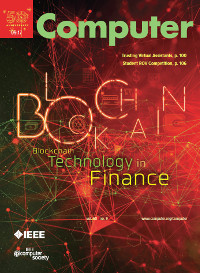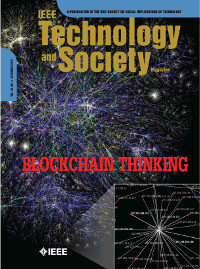Publications
![]()
Please click here to search IEEE Xplore for recent articles on Blockchain, Distributed Ledger Technology (DLT) and Directed Acylic Graph (DAG).
IEEE Press Books
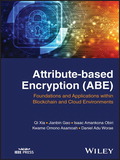
Attribute-based Encryption (ABE): Foundations and Applications within Blockchain and Cloud Environments
IEEE Special Issues
IEEE Talks Blockchain
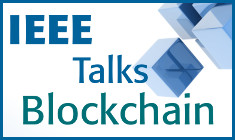 IEEE Talks Blockchain: Overview of the Blockchain Ecosystem
IEEE Talks Blockchain: Overview of the Blockchain Ecosystem
In our latest IEEE Talks Blockchain Q&A session, we spoke with Dr. Ramesh Ramadoss, co-chair of the IEEE Blockchain Initiative. Dr. Ramadoss discusses the evolution of the blockchain ecosystem, including emerging applications, standardization efforts, and opportunities for future growth and development.
IEEE White Papers
 IEEE Blockchain Transactive Energy (BCTE) Position Paper
IEEE Blockchain Transactive Energy (BCTE) Position Paper
A Bridge to a Democratized Energy Marketplace
IEEE Blockchain - May 2021
This Position Paper describes the basic framework and principles for using blockchain technology in power and energy domains with the emerging participatory grid. A key goal is the development of the most promising global Transactive Energy use cases which can be advanced toward broader commercialization using blockchain technology.
Reinforcing the Links of the Blockchain
IEEE Future Directions - November 2017
The purpose of this white paper is to explore the various ways by which the IEEE can lead and support an initiative on Blockchain while providing educational materials that will foster the next generation of blockchain engineers. This white paper summarizes and expands upon the IEEE Blockchain Incubator Workshop held by IEEE Future Directions at the end of October in 2017.
Download the white paper (PDF, 1 MB)
IEEE Blockchain Articles
Blockchain for Business Value: A Contract and Work Flow Management to Reduce Disputes Pilot Project
IEEE Engineering Management Review - December 2018
By Liang Xi Downey; Frédéric Bauchot; Jos Röling
Blockchain technology has seen significant growth, hype, and potential new developments over the past few years. In this article additional insights into how blockchain can add value to a business process relationship is detailed. Specifically an engineering contract workflow use application pilot including various high level system architectural aspects are presented. This application shows the integration of blockchain technology with existing legacy systems. Some management and technology issues are also overviewed for the reader.
Blockchain-Enabled E-Voting
IEEE Software - July/August 2018
By Nir Kshetri and Jeffrey Voas
Published in the July/August 2018 issue of IEEE Software; recognized among the top eight winners of the 2018 Most Influential Blockchain Research Papers by the Third Blockchain Connect Conference Awards.
"E-Voting is among the key public sectors that can be disrupted by blockchain technology. The idea in blockchain-enabled e-voting (BEV) is simple. To use a digital-currency analogy, BEV issues each voter a “wallet” containing a user credential. Each voter gets a single “coin” representing one opportunity to vote. Casting a vote transfers the voter’s coin to a candidate’s wallet. A voter can spend his or her coin only once. However, voters can change their vote before a preset deadline."
Download the paper (PDF, 463 KB)
 Blockchain-GDPR Privacy by Design: How Decentralized Blockchain Internet Will Comply with GDPR Data Privacy
Blockchain-GDPR Privacy by Design: How Decentralized Blockchain Internet Will Comply with GDPR Data Privacy
July 2018
By Claudio Lima, Ph.D., Blockchain Engineering Council, BEC Co-Founder; Vice Chair, IEEE Blockchain Standards
"The General Data Protection Regulation (GDPR) that was recently approved for implementation in the EEUU by May 25th, 2018 is already creating some controversies, when confronted with emerging Blockchain technologies, regarding what they have most in common: data privacy and protection. These are two are essential areas where Blockchain shines."
Download the paper (PDF, 899 KB)
Read Dr. Lima's article "Adapting Blockchain for GDPR Compliance" at InformationWeek
External Publications
Enhanced Distributed Ledger Technology
NIST Computer Security Resource Center - September 2019
The blockchain data structure and proof-of-work protocol were designed to solve the problem of double spending in cryptocurrencies. Although blockchain has found many applications outside of cryptocurrency, many of its features are not well suited to common data management applications. The added trust of distributed ledgers is a valuable feature, providing greatly simplified auditability and verification of actions among multiple parties in applications such as supply chain and others, but there are tradeoffs.
Blockchain's hash-based integrity verification provides trust, at the cost of an inability to delete or update records, leading to design complications that would not arise with conventional database management systems. Similarly, the sequencing guarantees of blockchain consensus protocols are needed for cryptocurrency in the absence of a universal timestamp. Moreover, actions within the distributed ledger must be connected with other actions in the real world, through accurate timestamps. We are developing a new architecture that provides the trust features of blockchains, with characteristics that allow for simpler designs and greater practicality in conventional data management problems. We believe this alternative can lead to new approaches to incorporating trust into distributed systems applications.
Blockchain and Economic Development: Hype vs. Reality
Center for Global Development - July 2017
Increasing attention is being paid to the potential of blockchain technology to address long-standing challenges related to economic development. Blockchain proponents argue that it will expand opportunities for exchange and collaboration by reducing reliance on intermediaries and the frictions associated with them. The purpose of this paper is to provide a clear-eyed view of the technology’s potential in the context of development. In it, we focus on identifying the questions that development practitioners should be asking technologists, and challenges that innovators must address for the technology to meet its potential.
Read more at the Center for Global Development
A Case Study for Blockchain in Healthcare: “MedRec” prototype for electronic health records and medical research data
MIT Media Lab, Beth Israel Deaconess Medical Center - August 2016
A decentralized record management system to handle electronic health records, using Blockchain technology that manages authentication, confidentiality, accountability and data sharing.
Download white paper at HealthIT.gov (PDF, 591 KB)

